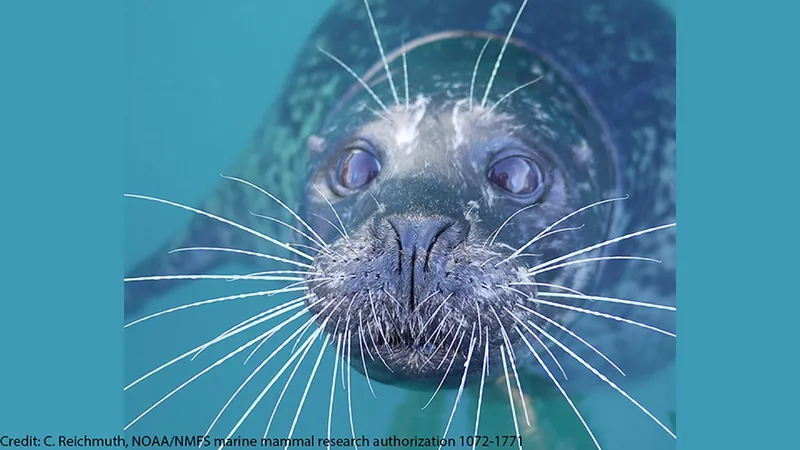
Breakthrough Study Reveals How Loud Noises Affect Seals' Hearing
2025-07-01
Author: Emily
In a fascinating new study, researchers uncover how human-generated sounds in coastal areas are impacting the hearing of seals. From the rumble of shipping and dredging activities to the shrill of airplanes overhead, these animals are constantly besieged by a cacophony of noises.
Understanding Temporary Threshold Shift in Seals
Led by marine mammal expert Colleen Reichmuth, the research team analyzed a comprehensive dataset from the University of California, Santa Cruz, to investigate what's known as a temporary threshold shift (TTS)—a temporary drop in hearing ability induced by loud noises. This vital study sheds light on how seals respond to their increasingly noisy environments.
Real-life Experiments with Seals
Conducting their experiments required remarkable patience and ingenuity. The team trained two seal species—the northern elephant seal and the harbor seal—to voluntarily leave their pools and enter a specially designed hearing chamber. First, they gauged these seals’ hearing sensitivity in a calm, serene environment. Following this, the seals were subjected to different noise levels, and researchers meticulously retested them to observe any hearing alterations.
Seals Show Resilience Against Noise Pollution
Interestingly, the results revealed that seals are less vulnerable to hearing loss from airborne noises when compared to their relatives, the sea lions and fur seals. Reichmuth noted, "This data is pivotal; it can help refine noise exposure criteria for marine mammals, providing crucial insights into their adaptive capabilities."
Duration of Noise Matters More Than Volume
One surprising discovery was that the duration of the noise exposure had a more significant effect on TTS than the loudness itself. This finding could have substantial implications for how we understand the impacts of noise on marine life.
An Intriguing Adaptation
In an unexpected twist during the study, one harbor seal demonstrated an ability to adapt over time by learning to voluntarily close its ears to shield itself from the damaging sounds. Reichmuth described this observation as "an intriguing possibility that merits further study," hinting at the seals' remarkable adaptability in the face of environmental challenges.









 Brasil (PT)
Brasil (PT)
 Canada (EN)
Canada (EN)
 Chile (ES)
Chile (ES)
 Česko (CS)
Česko (CS)
 대한민국 (KO)
대한민국 (KO)
 España (ES)
España (ES)
 France (FR)
France (FR)
 Hong Kong (EN)
Hong Kong (EN)
 Italia (IT)
Italia (IT)
 日本 (JA)
日本 (JA)
 Magyarország (HU)
Magyarország (HU)
 Norge (NO)
Norge (NO)
 Polska (PL)
Polska (PL)
 Schweiz (DE)
Schweiz (DE)
 Singapore (EN)
Singapore (EN)
 Sverige (SV)
Sverige (SV)
 Suomi (FI)
Suomi (FI)
 Türkiye (TR)
Türkiye (TR)
 الإمارات العربية المتحدة (AR)
الإمارات العربية المتحدة (AR)